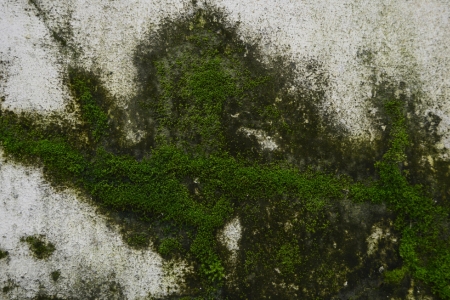Is Algae Bad? Can it Hurt Concrete Too?

Yes, algae can ruin the look of concrete. If allowed to dwell long enough, it will cause irreversible damage. I have personal first-hand experience in cleaning concrete that, other than having algae growth for too long, had no other issues. In my gallery, you can find pictures of a small concrete pad in a backyard where the algae growth has grown into thick layers of flaky chunks. Very low pressure was used to remove this because I knew what was going to be left afterwards. After applying the algaecide and letting it dwell, I rinsed the surface, and before my eyes, the layers of black flakes melted away leaving bare, exposed aggregate. This area had sufficient drainage, was covered by a roof, and did not receive more or less water than the rest of the platform. It did receive slightly more sun during the day, allowing the organics to congregate AND concentrate their destruction on this single area. You can learn more on this house washing project page.
In that same post, you can see discolorations in the paints along the window sills I cleaned. The customer told me they had actually tried to pressure wash it prior to calling me. She said the algae came right back! She was then left with the same algae growth and now degraded paint. What a shame! I soft washed this entire property, including the fence, house, and patio. Later on, I educated the customer about my process. The results speak for themselves!
How Does Algae Hurt Concrete?
In another project post, you can see a driveway that, at first appearance, is not particularly “dirty”. However, algae is clearly growing in the millions of holes all over the concrete driveway and walkway. Professional pressure washers normally use a piece of equipment called a surface cleaner. It uses a rotating bar with high pressure nozzles to make the bar spin, thus cleaning in a straight overlapping path as you walk. The main issue with these is that you take a cone of high-pressure water, usually between 2500-3500 psi per nozzle, and lower it to just about an inch or so from the ground. Spraying high pressure water into these holes, over time, WILL cause them to grow wider and deeper. Holes become cracks, cracks become craters, and craters become a driveway with large chunks of concrete missing and separated from the slab.
In this case, I chose to soft wash that driveway. With the algae dead, the driveway naturally brightened up over the next few days. While I was not able to repair the previous damage, I was able to educate the customer and explain the benefits of soft washing this particular driveway instead of traditional pressure washing with a surface cleaner. They were quite pleased!

Schedule Quality Pressure Washing In Orlando & The Surrounding Areas Today!